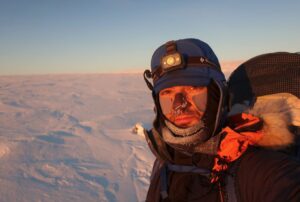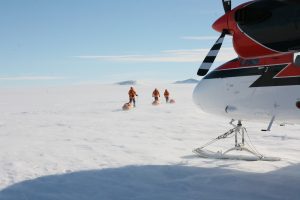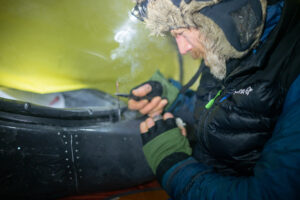Scientists have discovered a newly established colony of 75 gentoo penguin chicks on little Andersson Island in Antarctica. It is the first documented gentoo migration to the archipelago, an unusually southern location for the breed.
Gentoo penguins are inclined to relatively temperate, ice-free zones. Until recently, conditions within Andersson Island’s latitudinal band were too icy for gentoo chicks. Similar migratory trends observed with other species suggest that the birds are responding to fast-rising global temperatures.

Photo: Poring Studio
Antarctica and climate change
The Antarctic Peninsula is one of Earth’s most rapidly warming regions. Temps there have risen 3° C on average since the early 1970s. What may seem like a minor increase has already proven catastrophic for the area’s fauna and flora.
Elimination of livable terrain through industrial fishing, glacial calving, and rising sea levels, as well as the sweating-out of sensitive species, has resulted in monumental habitat losses and food chain disruptions. A recent expedition to Elephant Island found that chinstrap penguin colonies had collapsed by as much as 77% in 50 years.
Gentoo penguins as climate sentinels
Though research on Andersson Island’s fledgling penguin colony has just begun, experts say the reason for the bird’s uncharacteristic migration is apparent. The gentoo penguin was expelled from a region they’ve inhabited for millennia by a very sharp and fast uptick in atmospheric heat. The same warming effect also morphed an intractable polar region into a relatively hospitable landing for the flightless birds — at least for now.

Two Gentoo chicks rest up. Photo: K. Nelson
The discovery has spurred renewed calls from the scientific community to establish a network for marine protected areas in Antarctica to help safeguard the region in the face of a rapidly changing climate.
“Penguins are a sentinel species and a great indicator of the health of the Antarctic ecosystem,” stated the expedition’s lead ecologist, Dr. Heather Lynch. “As expected, we’re finding gentoo penguins nearly everywhere we look –- more evidence that climate change is drastically changing the mix of species here on the Antarctic Peninsula.”






